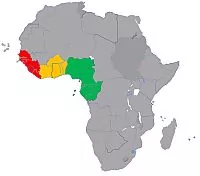South Africa's ruling African National Congress (ANC) remains in charge of a stable government for now, but recent electoral setbacks and corruption scandals put it in a vulnerable position from which it may be forced to share power with the opposition in 2024.
The main opposition Democratic Alliance (DA) is plotting a coalition with smaller parties to block an alliance between the ANC and the "anti-imperialist" Economic Freedom Fighters (EFF) ahead of 2024 national elections. At stake is the right to form the next administration and set the economic agenda on totemic issues such as black economic empowerment, employment and expropriation.
Significance – Rainbow coalition
An alliance between the ANC and the EFF could be established if the ruling party fails to win at least 50% of seats in the national parliament from 2024 elections and consequently cannot form a government outright. To block this, the DA has led initiative in which five parties have tentatively agreed to join the DA in talks for a rival coalition to take power.1
Fears or hopes of ANC underperformance have not emerged from a vacuum.
- In 2021 municipal elections, the ANC's share of votes was only 46%; the first time below 50% performance in nationwide elections since the end of apartheid in 1994.
- The party has since lost control in key cities such as Pretoria and Johannesburg.
- And now, a corruption scandal involving President Cyril Ramaphosa, in which the ANC used its parliamentary majority to block an impeachment probe into the president, has further called into question the party's willingness to reform itself following years of state capture under Jacob Zuma.
Against this backdrop, the ANC is considering a coalition government with the radical EFF, South Africa's third-largest party in parliament, led by its former youth leader Julius Malema. That alliance has been termed a 'doomsday coalition' by the liberal DA, which wants to rally other liberal parties in its own coalition, win more than 50% of seats, and form the next government instead of the ANC/EFF.
Outlook – Talks
The DA plans to hold a convention alongside prospective allies between June and September where they will discuss the structure and terms of the 'rainbow coalition'. Taken as a whole, these five parties were able to command about one-third of the 2021 municipal election votes and must stake its chances in 2024 on growing beyond its base of voters in South Africa's urban areas and among white voters.
However, a key sticking point for the talks will be suspicion toward the DA, which has indicated it is also prepared to separately negotiate with the ANC to get a share of power. Such an alliance would still allow the DA to block the EFF's radical policy plans on issues such as employment and expropriation.
Footnote
1. The parties are Inkatha Freedom Party, Action South Africa, National Freedom Party, Freedom Front Plus and United Independent Movement
The content of this article is intended to provide a general guide to the subject matter. Specialist advice should be sought about your specific circumstances.

